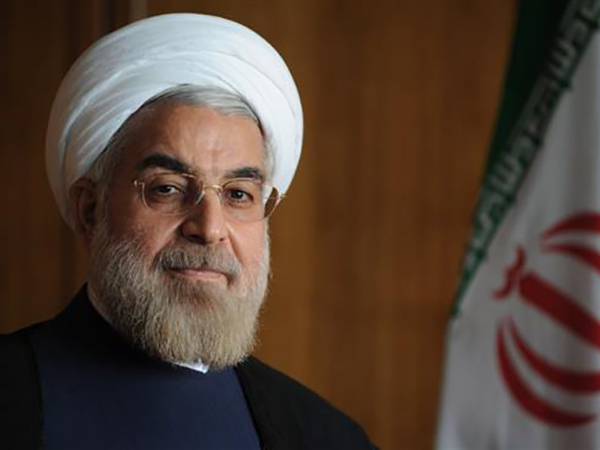US Republican presidential candidate Donald Trump won more than 270 electoral votes in the 2016 presidential election on Wednesday, enough to make him the 45th president of the United States even as vote counting continued in a number of states.
The Iranian chief executive added that Washington cannot continue to spread Iranophobia as forcefully as before in order to win international consensus against the Islamic Republic.
“The Islamic Republic’s policy of constructive interaction with the world and breaking up nuclear sanctions, has placed Iran’s economic ties with all countries on an improving and irreversible course,” he noted.
Rouhani further said a nuclear agreement negotiated with Iran under the outgoing US administration is not a deal with a single country or a single government.
The deal has been reflected in a UN Security Council Resolution, and therefore, cannot be overturned on the back of one government’s decision, Rouhani added.
The agreement, known as the Joint Comprehensive Plan of Action (JCPOA), was struck between Iran on the one side, and the US, France, China, Britain, Russia, and Germany on the other in June 2015.
‘US Must Still Honor JCPOA’
Also reacting to the US election results, Iranian Foreign Minister Mohammad Javad Zarif said during a visit to Romania that the Islamic Republic expected the US president-elect to honor the JCPOA.
“It is our norm not to interfere in the domestic affairs of other countries,” Foreign Minister Zarif said, commenting on Trump’s win.
“Since Iran and the US have no political relations, what is important is that America’s next president is bound by the multilateral commitments of the JCPOA,” he said, referring to the nuclear deal.
“We are certain the international community would expect the same thing from the United States of America.”
Ever since the deal was struck, its opponents in the US Congress have been threatening that a future US administration opposed to the agreement would scrap it.
Trump had threatened he would “tear up” the JCPOA or try to renegotiate its terms if he was to be elected president.
Back in July, Leader of the Islamic Revolution Ayatollah Seyyed Ali Khamenei said, “We will not violate the JCPOA, but if the opposite side violates it – as US presidential candidates are currently threatening to tear up the JCPOA – if they tear up the JCPOA, we will burn it.”
In practice, however, the deal, known as the Joint Comprehensive Plan of Action (JCPOA), runs little risk of being scrapped out of hand by any level-headed American government as it has been endorsed by a United Nations Security Council resolution, meaning that it has effectively become international law.
Zarif said the president of the US should “grasp the realities of the world today and connect his policies with those realities.”
‘Wrongful US Policies Behind Mideast Crises’
Later, Iran’s Foreign Ministry Spokesman Bahram Qassemi also reacted to the win, saying Washington’s policies and approaches over the past decades have brought about “an unpleasant, bitter experience” for the Iranian government and people.
“What is important to Iran and its people, and would be used by them as evaluation criteria is the next US administration’s future performance and executive policies,” he added.
He further said the policies of previous US administrations and their intervention in Middle Eastern countries are the “main factor behind the escalation of tensions” in the troubled region.
All these testify to the need for the US to seriously review its policies vis-à-vis other regions, he added.
‘Americans Frustrated With Political Structure’
Meanwhile, Secretary of Iran’s Supreme National Security Council (SNSC) Ali Shamkhani, said the outcome of the US election indicate “a rise in frustration and distrust among the majority of the American society with the current structure and trends in the country.”
He, however, expressed hope that the election paves the way for the US to revise its policies, which were based on disregard for the interests of the majority and reliance on countless resources, which it was using to pursue imperialism, interventionism, warfare, and bloodshed against other countries.
Shamkhani, meanwhile, asserted that no change of the ruling system in any foreign country would prompt Iran to change its “independent course and smart attitude.”
